#black history month books
Text
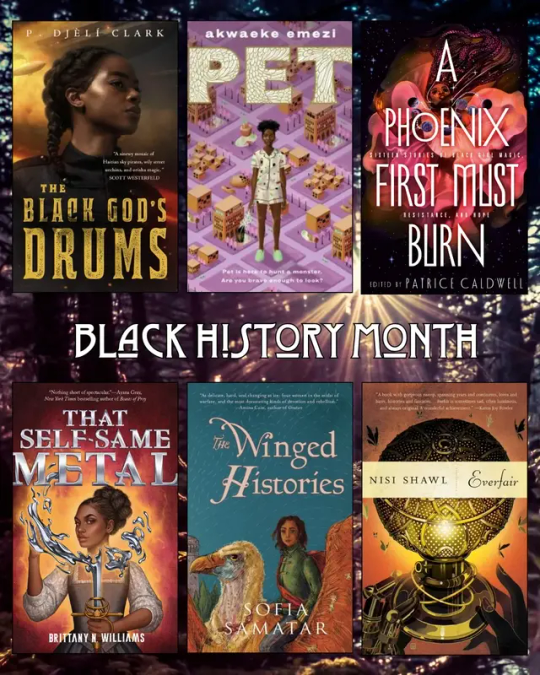
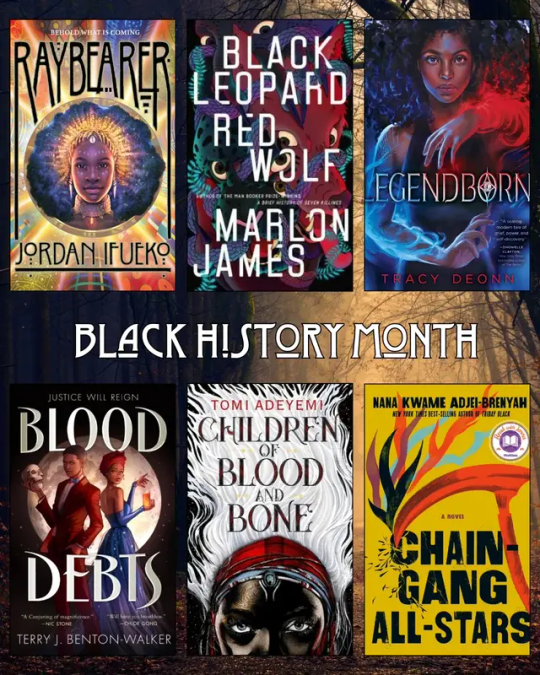


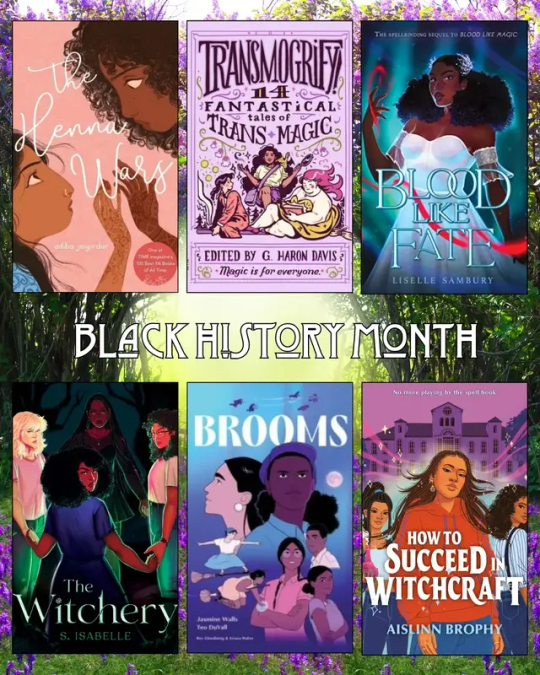
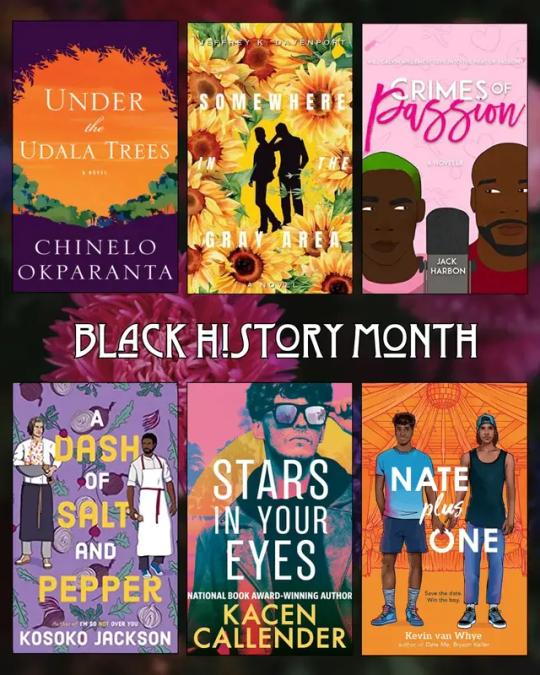

"Every indifference to prejudice is suicide because, if I don’t fight all bigotry, bigotry itself will be strengthened and, sooner or later, it will return on me." -Bayard Rustin
*Edit to add that Adiba Jaigirdar is Bangladeshi/Irish, not Black. Apologies !
#noahs book recs#black authors#black history month#black history every day#queer books#indie books#fantasy books#contemporary books#gay books#sapphic books#lgbtqia books
387 notes
·
View notes
Text
Black Vampires!

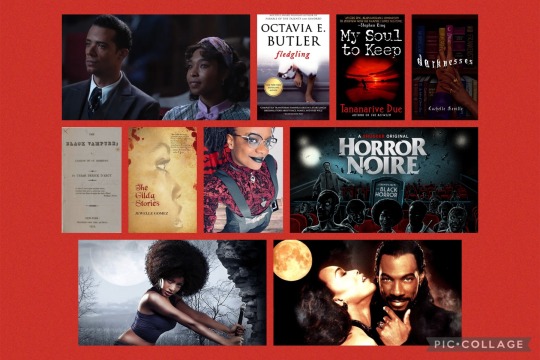
Below the cut you’ll find a list of 10 pieces of vampire media centring black folks by black folks, happy black history month!
1. Fledgling by Octavia Butler (see more)
2.The Gilda Stories by Jewelle Gomèz
3.House of Hunger by Alexis Henderson
4.Darknesses by Lachelle Seville
5.My Soul to Keep by Tananarive Due
6.Slay: the stories of the vampire noire by multiple authors
7.Horror Noire (documentary on AMC+)
8.Vampires in Brooklyn (movie)
9.The Dark World Series by @writingvampires
10.The Black Vampyre (1819) by Uriah Derick D'Arcy, problematic themes and handling of blackness, however our black protagonist vampire, a black bisexual (implied) vampire protagonist is very AMC-Louis-like and it’s important for understanding the others as groundbreaking and reclaiming their stories as they are.
Happy Black History month! I rarely make booklists like this, however, it recently came to my attention that some people aren’t aware of the brilliant subgenre that is gothic/horror written by people of global majority (colour), given it is black history month this list focuses on black people vampire stories written by black people, most of which are also queer (cause vampires are queer af). Allyship is the bare minimum, if we as a society are to grow at all from our forefathers we must understand that our ancestors were flawed, unlearn internalized biases (racism etc), and make intersectional spaces for everyone. I’ve kept it to 10 for my own ability to count everything, I can say with most certainty there’s more out there. These are just the ones I’ve read/watched and have influenced me the most.

#meeralikesbooks#black history month#black history month 2024#books and reading#vampires#gothic horror#black vampire#queer#lgbtq+#bisexual#lesbian#representation#representation matters
253 notes
·
View notes
Video
undefined
tumblr
The history of Green Books
Start your own small thing
#tiktok#los angeles#LA Public library#books and libraries#books#libraries#library#zines#zine history#history#black history month#black history#the great migration
1K notes
·
View notes
Text
Here are some books by black queer authors!! Happy Black History Month!!!
🖤❤️💛💚
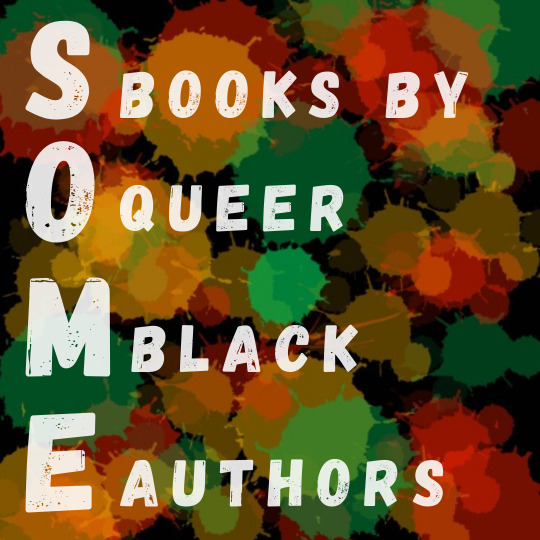
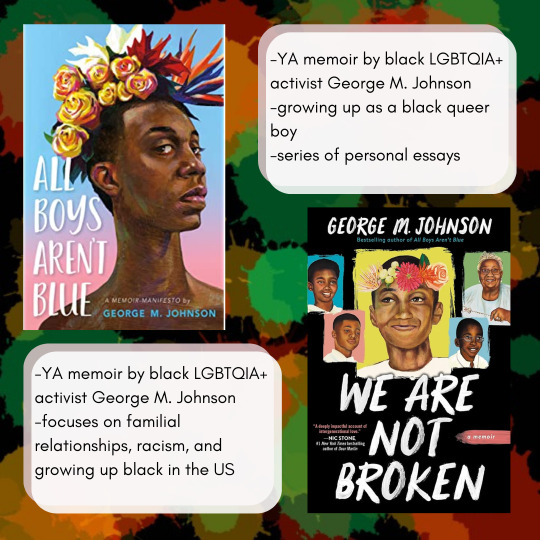
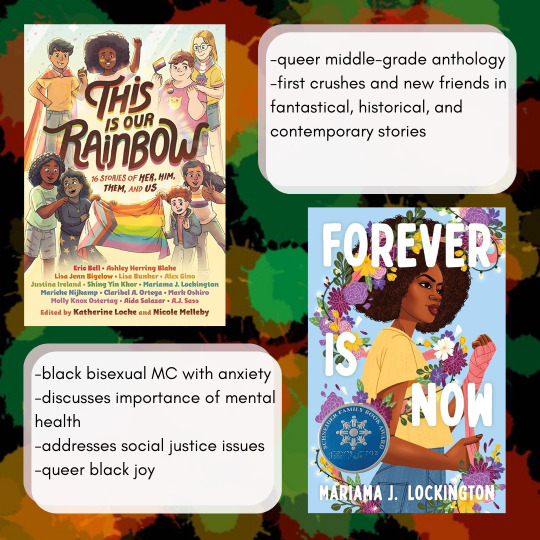
#lgbt pride#lgbt representation#lgbtqa#queer community#lgbt books#queer books#queer writers#queerrep#bookworm#black history month#black queer representation
118 notes
·
View notes
Text
Remember, the first known drag queen was a former black slave
William Dorsey Swann



#put that in your history books#black history#lgbtqia#drag queen#William Dorsey Swann#history#queer history#pride month
54 notes
·
View notes
Text
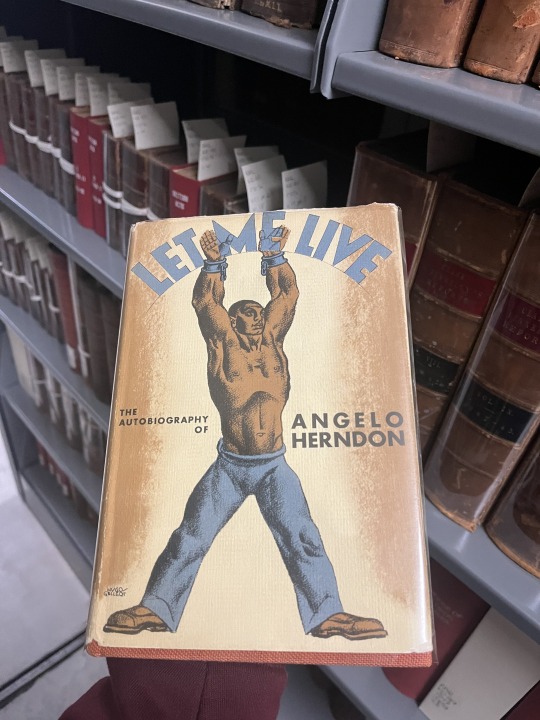
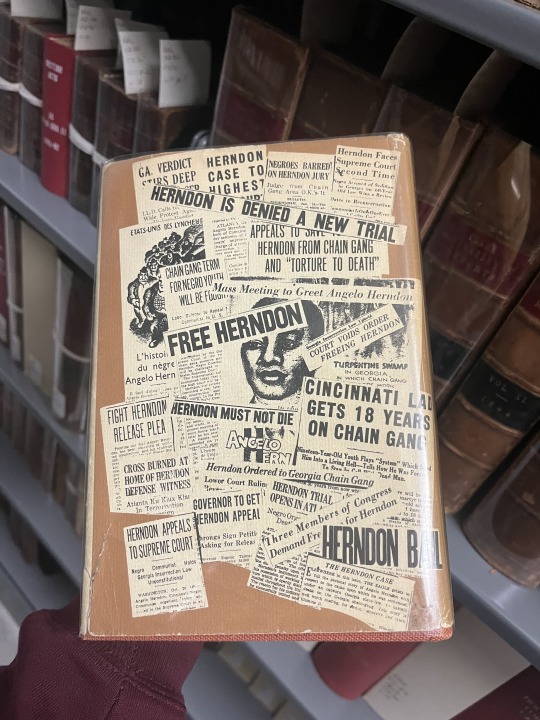
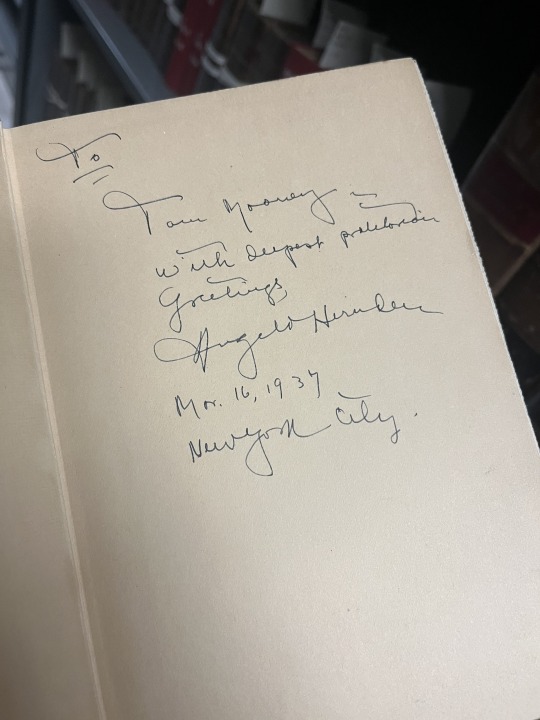
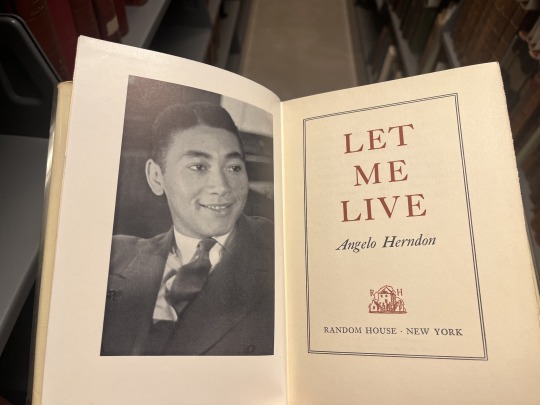
In honor of Black History Month, we'd like to share our copy of Let Me Live (1937), by Angelo Herndon.
Angelo Herndon (1913-1997) was a coal miner and labor organizer who worked across racial lines. After an attempt to organize black and white industrial workers in Atlanta in 1932, Herndon was arrested and convicted of insurrection. The prosecution case pointed to his possession of communist literature (all of which could be found at a public library), which were found in his hotel room.
Herndon was eventually sentenced to 18 to 20 years of hard labor, but his conviction was overturned by the state appeals court and he was released on bail. On April 26th, 1937, a narrow majority of the Supreme Court ruled in his favor, ruling Georgia's insurrection statute as unconstitutional.
Let Me Live, Herndon's autobiography written during his time in prison, tells the story of his arrest and times in court but also describes his early life up until that point.
This first edition copy features an inscription from Herndon to Thomas Mooney, a noted political activist and labor leader who was controversially imprisoned. When Herndon was out on bail awaiting appeals, he visited Mooney in prison and conducted an interview, which was published in Labor Defender in January, 1935.
To view more about this book and other materials to celebrate Black History Month, visit our digital exhibit, Law and the Struggle for Racial Justice.
#riesenfeld center#umn#university of minnesota law#university of minnesota law library#rare books#umn law#archives#special collections#law school#angelo herndon#black history month#black history matters#activism#black rights
111 notes
·
View notes
Text

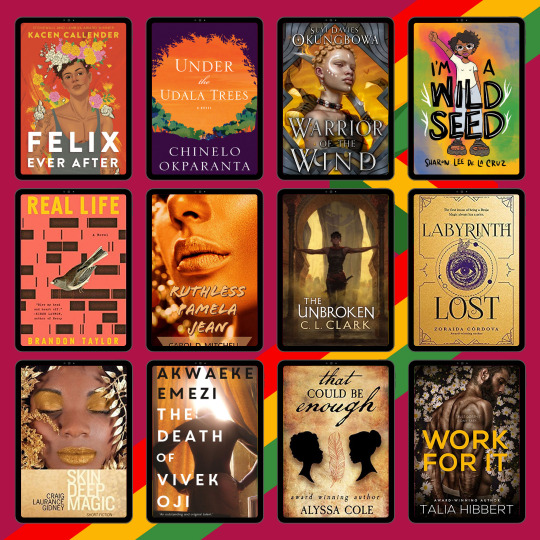
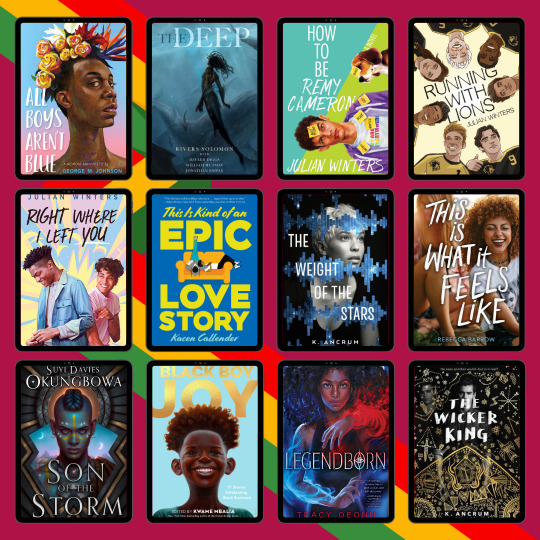
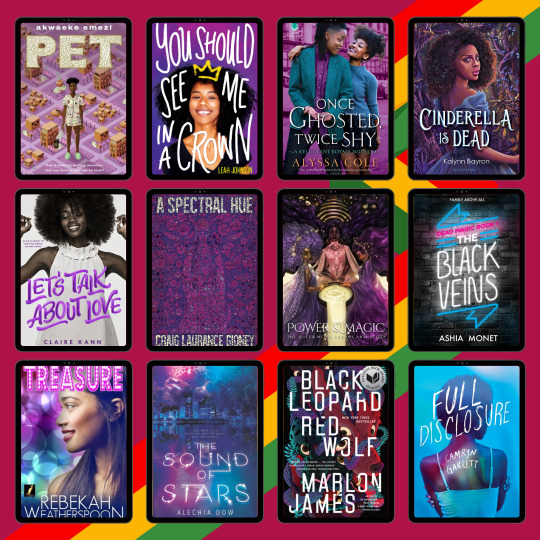
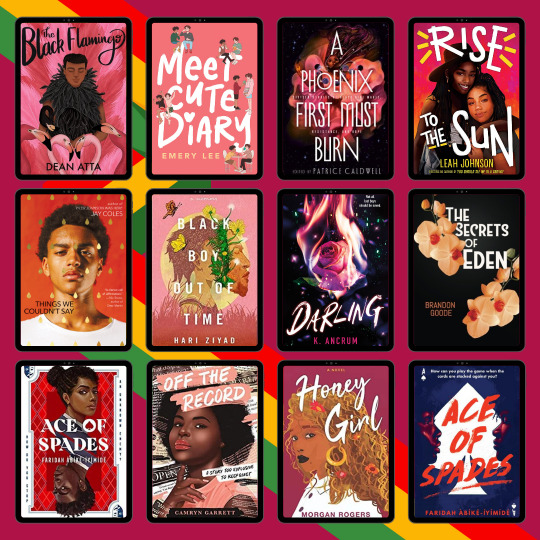
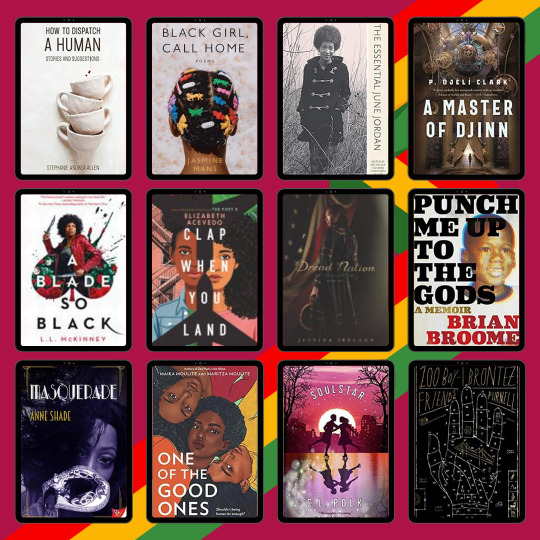

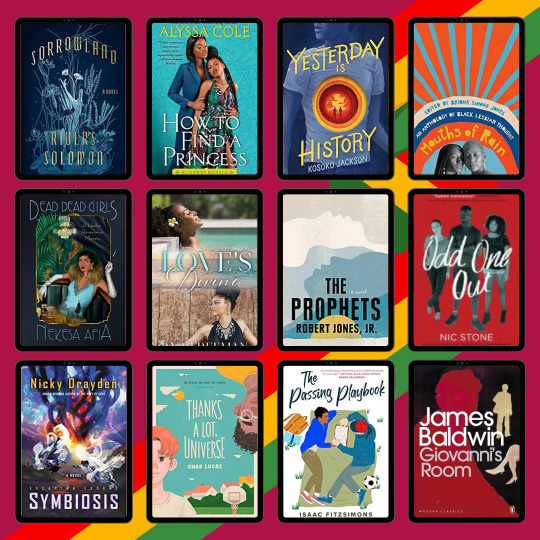
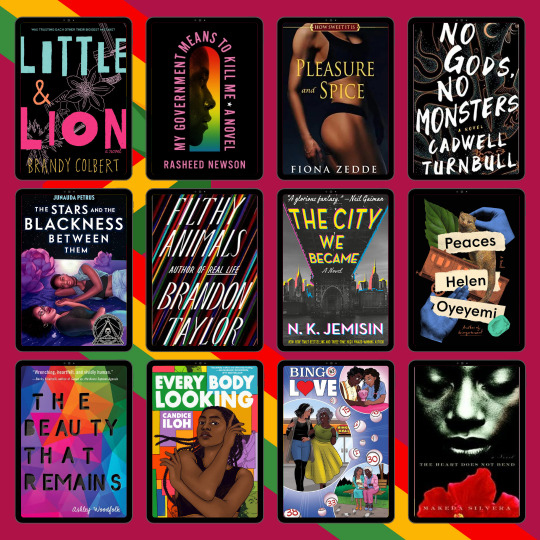
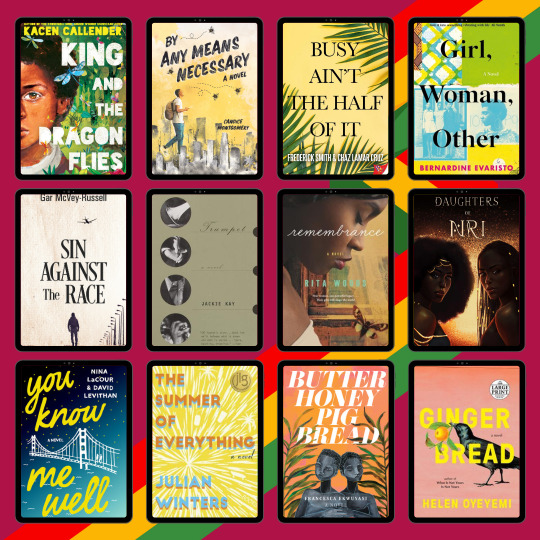
🖤 Black History Month ❤️
💛 Queer Books by Black Authors 💚
[ List Under the Cut ]
🖤 Felix Ever After by Kacen Callender
❤️ Under the Udala Trees by Chinelo Okparanta
💛 Warrior of the Wind by Suyi Davies Okungbowa
💚 I'm a Wild Seed by Sharon Lee De La Cruz
🖤 Real Life by Brandon Taylor
❤️ Ruthless Pamela Jean by Carol Denise Mitchell
💛 The Unbroken by C.L. Clark
💚 Labyrinth Lost by Zoraida Córdova
🖤 Skin Deep Magic by Craig Laurance Gidney
❤️ The Death of Vivek Oji by Akwaeke Emezi
💛 That Could Be Enough by Alyssa Cole
💚Work for It by Talia Hibbert
🖤 All Boys Aren't Blue by George M. Johnson
❤️ The Deep by Rivers Solomon
💛 How to Be Remy Cameron by Julian Winters
💚 Running With Lions by Julian Winters
🖤 Right Where I Left You by Julian Winters
❤️ This Is Kind of an Epic Love Story by Kacen Callender
💛 The Weight of the Stars by K. Ancrum
💚 This Is What It Feels Like by Rebecca Barrow
🖤 Son of the Storm by Suyi Davies Okungbowa
❤️ Black Boy Joy by Kwame Mbalia
💛 Legendborn by Tracy Deonn
💚 The Wicker King by K. Ancrum
🖤 Pet by Akwaeke Emezi
❤️ You Should See Me in a Crown by Leah Johnson
💛 Once Ghosted, Twice Shy by Alyssa Cole
💚 Cinderella Is Dead by Kalynn Bayron
🖤 Let's Talk About Love by Claire Kann
❤️ A Spectral Hue by Craig Laurance Gidney
💛 Power & Magic by Joamette Gil
💚 The Black Veins by Ashia Monet
🖤 Treasure by Rebekah Weatherspoon
❤️ The Sound of Stars by Alechia Dow
💛 Black Leopard, Red Wolf by Marlon James
💚 Full Disclosure by Camryn Garrett
🖤 The Black Flamingo by Dean Atta
❤️ Meet Cute Diary by Emery Lee
💛 A Phoenix First Must Burn (edited) by Patrice Caldwell
💚 Rise to the Sun by Leah Johnson
🖤 Things We Couldn't Say by Jay Coles
❤️ Black Boy Out of Time by Hari Ziyad
💛 Darling by K. Ancrum
💚 The Secrets of Eden by Brandon Goode
🖤 Ace of Spades by Faridah Àbíké-Íyímídé
❤️ Off the Record by Camryn Garrett
💛 Honey Girl by Morgan Rogers
💚 Ace of Spades by Faridah Àbíké-Íyímídé
🖤 How to Dispatch a Human by Stephanie Andrea Allen
❤️ Black Girl, Call Home by Jasmine Mans
💛 The Essential June Jordan (edited) by Jan Heller Levi and Christoph Keller
💚 A Master of Djinn by P. Djèlí Clark
🖤 A Blade So Black by L.L. McKinney
❤️ Clap When You Land by Elizabeth Acevedo
💛 Dread Nation by Justina Ireland
💚 Punch Me Up to the Gods by Brian Broome
🖤 Masquerade by Anne Shade
❤️ One of the Good Ones by Maika Moulite & Maritza Moulite
💛 Soulstar by C.L. Polk
💚 100 Boyfriends by Brontez Purnell
🖤 Hurricane Child by Kacen Callender
❤️ Quietly Hostile by Samantha Irby
💛 Coffee Will Make You Black by April Sinclair
💚 The Death of Vivek Oji by Akwaeke Emezi
🖤 If It Makes You Happy by Claire Kann
❤️ Sweethand by N.G. Peltier
💛 This Poison Heart by Kalynn Bayron
💚 Better Off Red by Rebekah Weatherspoon
🖤 Friday I’m in Love by Camryn Garrett
❤️ Rainbow Milk by Paul Mendez
💛 Memorial by Bryan Washington
💚 Patsy by Nicole Y. Dennis-Benn
🖤 Sorrowland by Rivers Solomon
❤️ How to Find a Princess by Alyssa Cole
💛 Yesterday is History by Kosoko Jackosn
💚 Mouths of Rain (edited) by Briona Simone Jones
🖤 Dead Dead Girls by Nekesa Afia
❤️ Love's Divine by Ava Freeman
💛 The Prophets by Robert Jones Jr
💚 Odd One Out by Nic Stone
🖤 Symbiosis by Nicky Drayden
❤️ Thanks a Lot, Universe by Chad Lucas
💛 The Passing Playbook by Isaac Fitzsimons
💚 Giovanni’s Room by James Baldwin
🖤 Little & Lion by Brandy Colbert
❤️ My Government Means to Kill Me by Rasheed Newson
💛 Pleasure and Spice by Fiona Zedde
💚 No Gods, No Monsters by Cadwell Turnbull
🖤 The Stars and the Blackness Between Them by Junauda Petrus
❤️ Filthy Animals by Brandon Taylor
💛 The City We Became by N.K. Jemisin
💚 Peaces by Helen Oyeyem
🖤 The Beauty That Remains by Ashley Woodfolk
❤️ Every Body Looking by Candice Iloh
💛 Bingo Love by Tee Franklin, Jenn St-Onge, Joy San
💚 The Heart Does Not Bend by Makeda Silvera
🖤 King and the Dragonflies by Kacen Callender
❤️ By Any Means Necessary by Candice Montgomery
💛 Busy Ain't the Half of It by Frederick Smith & Chaz Lamar Cruz
💚 Girl, Woman, Other by Bernardine Evaristo
🖤 Sin Against the Race by Gar McVey-Russell
❤️ Trumpet by Jackie Kay
💛 Remembrance by Rita Woods
💚 Daughters of Nri by Reni K. Amayo
🖤 You Know Me Well by Nina LaCour
❤️ The Summer of Everything by Julian Winters
💛 Butter Honey Pig Bread by Francesca Ekwuyasi
💚 Gingerbread by Helen Oyeyem
#black history month#queer romance#queer books#queer community#queer#book list#book blog#booklr#bookstagram#book lovers#book reader#book reading#books to read#reading#batty about books#battyaboutbooks
96 notes
·
View notes
Text
Octavia Butler, The Grand Dame of Science Fiction
youtube
#black history month#black history#black authors#librarylife#libraryland#science fiction#scifi#scifi books#Youtube
99 notes
·
View notes
Text
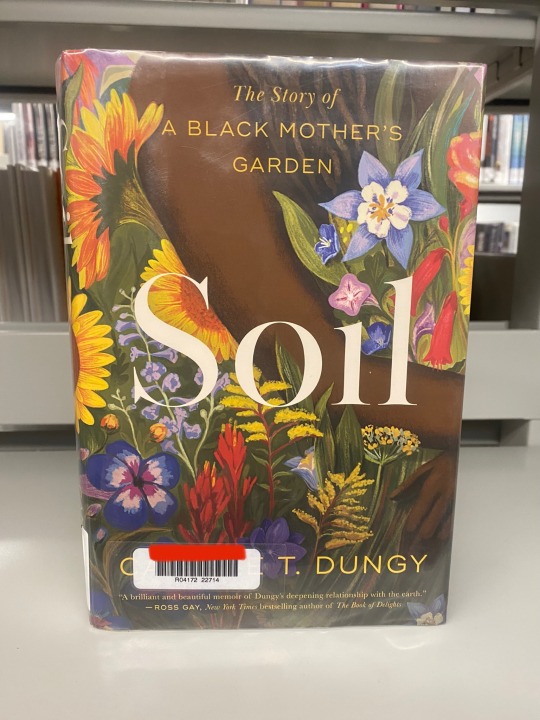
Book of the day! “Soil” by Camille T. Dungy. This is my current read! This book is about how when the author, a poet, moved to Fort Collins, there were restrictions on what you could grow in your yard. The book follows her journey to change the rules and her life through diversity. Amazing read 🌻
#book recommendations#books & libraries#books#libraries#public libraries#witchy#solarpunk#book of the day#black history month
91 notes
·
View notes
Text
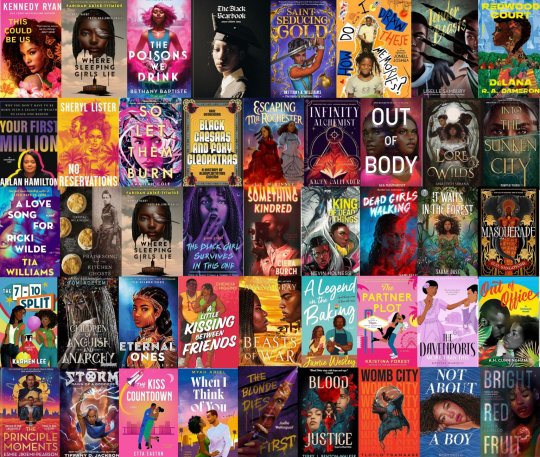
100+ black books coming in 2024 🫶🏾📚
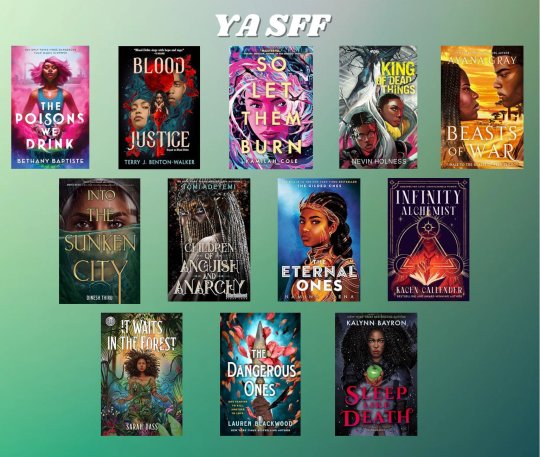
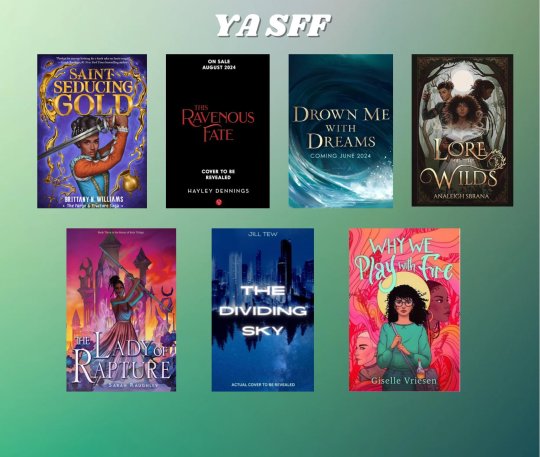
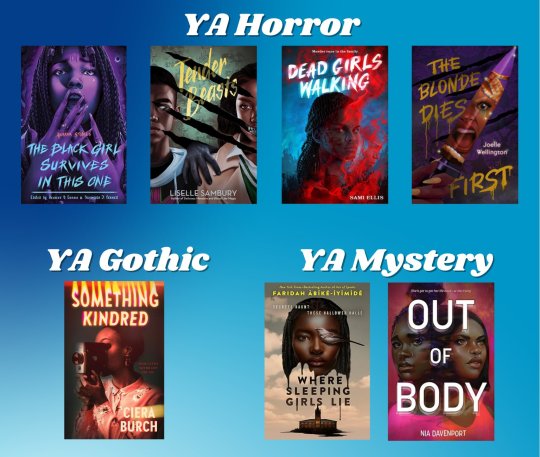
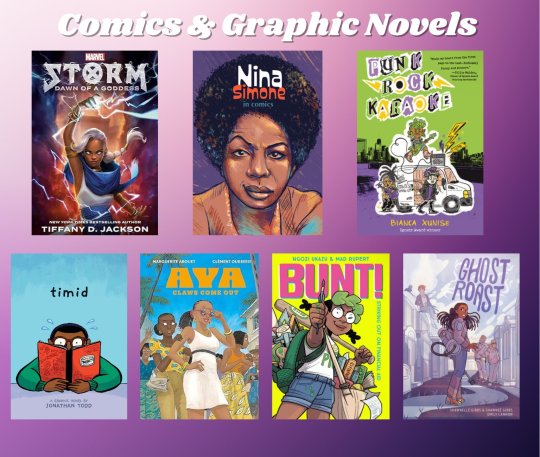
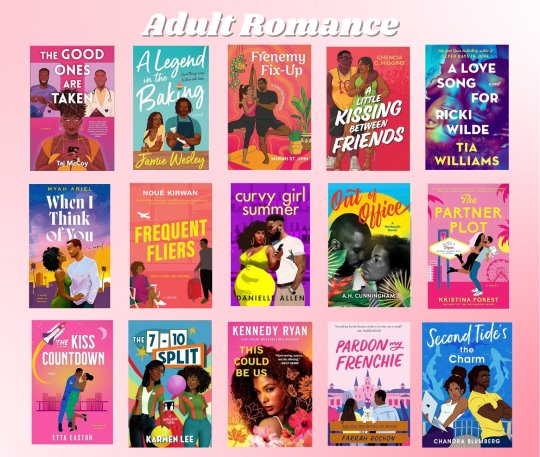
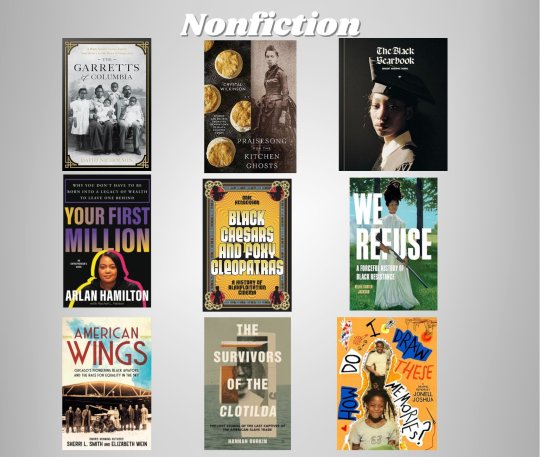
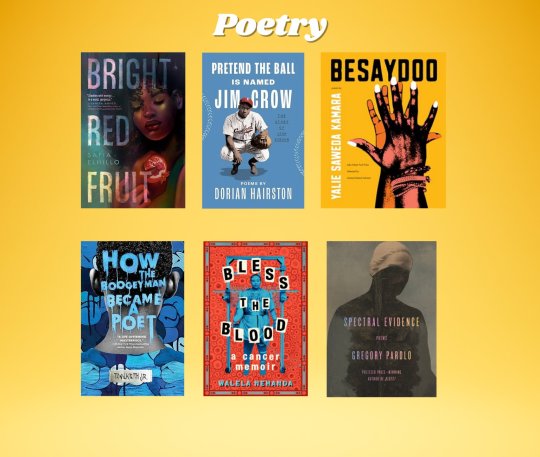
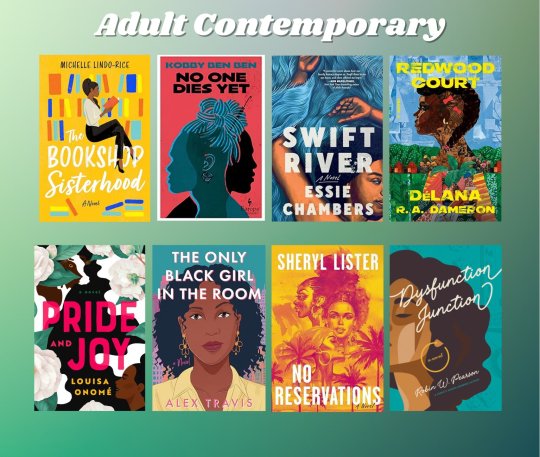
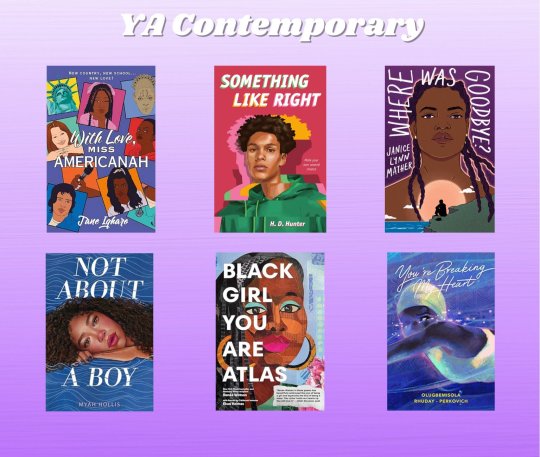
#black history month#black wlw books#wlw blog#black lesbian#black sapphic love#black love#black books#black excellence#lgbtq#wlw post#queer#black writers#black authors#wlw poetry
83 notes
·
View notes
Text

DC's 2024 Black History Month covers by Nikolas Draper-Ivey
68 notes
·
View notes
Photo

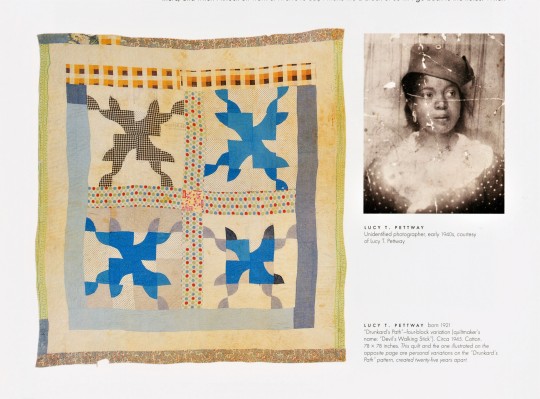
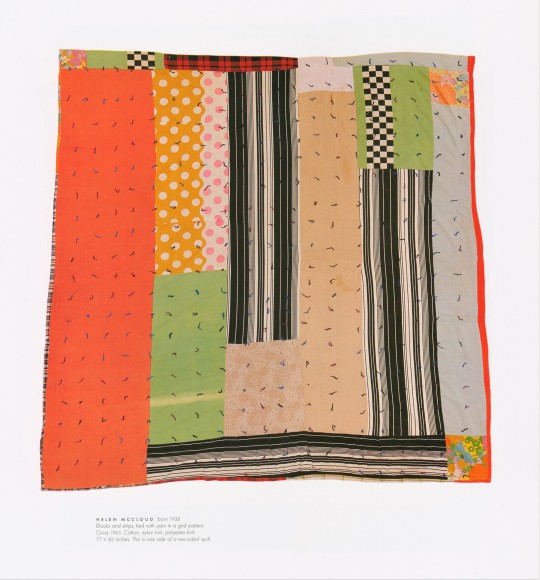
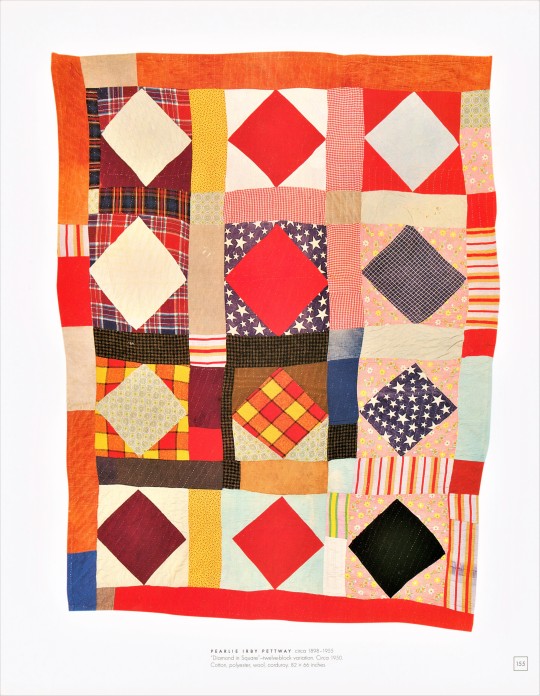
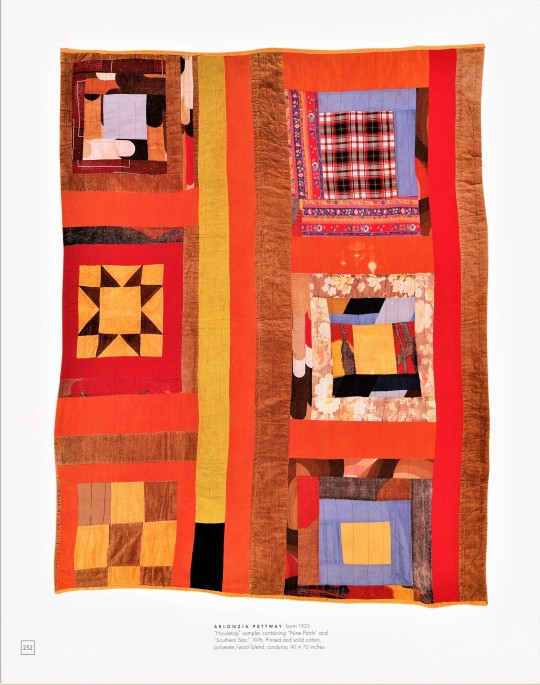
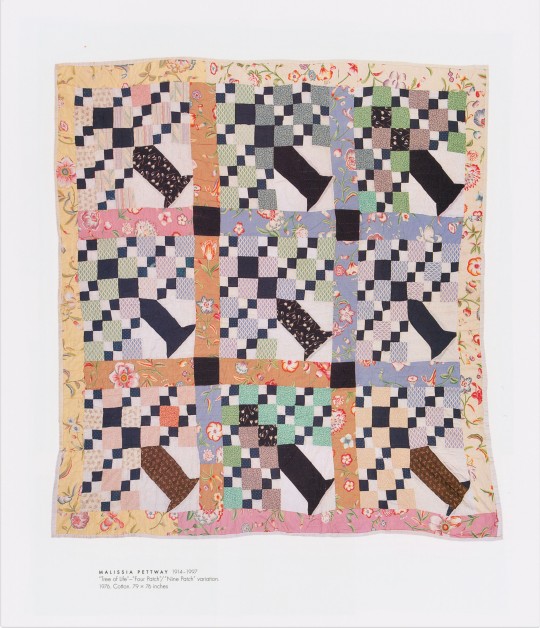
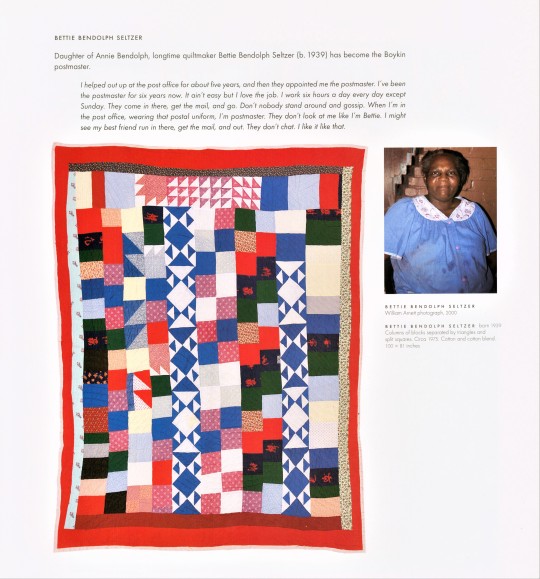
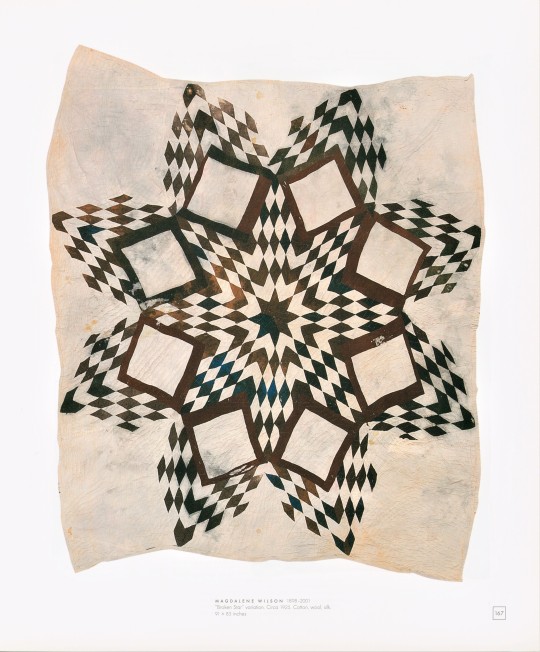
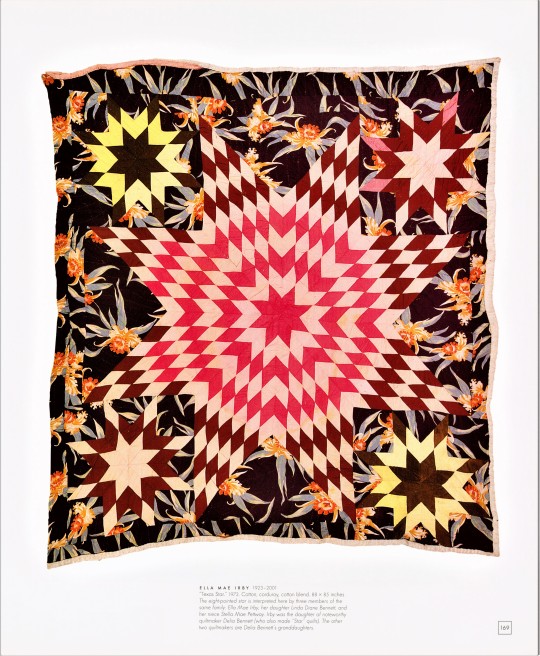
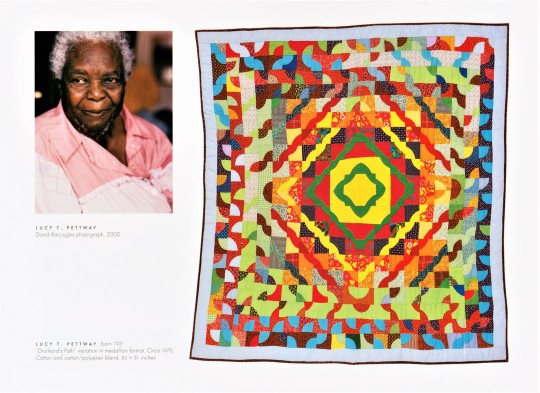
Decorative Sunday
GEE’S BEND QUILTS
Since the 19th century, the women of Gee’s Bend in southern Alabama have created stunning, vibrant quilts. In 2002, folk art collector, historian, and curator William Arnett organized an exhibition entitled "The Quilts of Gee's Bend," which debuted at the Museum of Fine Arts in Houston and later travelled to a dozen other locations across the country, including our own Milwaukee Art Museum (September 27, 2003 - January 4, 2004). This exhibition brought fame to the quilts, and Arnett's foundation Souls Grown Deep Foundation continues to collect and organize exhibitions for Gee’s Bend Quilts.
The images shown here are from Gee’s Bend: The Women and Their Quilts, with essays by John Beardsley, William Arnett, Paul Arnett, and Jane Livingston, an introduction by Alvia Wardlaw, and a foreword by Peter Marzio. The book was published in 2002 by Tinwood Books, Atlanta, and published in conjunction with the 2002 exhibition at the Museum of Fine Arts, Houston. It includes 350 color illustrations and 30 black-and-white illustrations. The dust jacket notes observe:
The women of Gee’s Bend - a small, remote, black community in Alabama - have created hundreds of quilt masterpieces dating from the early twentieth century to the present. . . . [The] quilts carry forward an old and proud tradition of textiles made for home and family. They represent only a part of the rich body of African American quilts. But they are in a league by themselves. Few other places can boast the extent of Gee’s Bends’s artistic achievement, the result of geographical isolation and an unusual degree of cultural continuity. In few places elsewhere have works been found by three and sometimes four generations of women of the same family, or works that bear witness to visual conversations among community quilting groups and lineages.
Our copy is a gift from our friend and benefactor Suzy Ettinger.
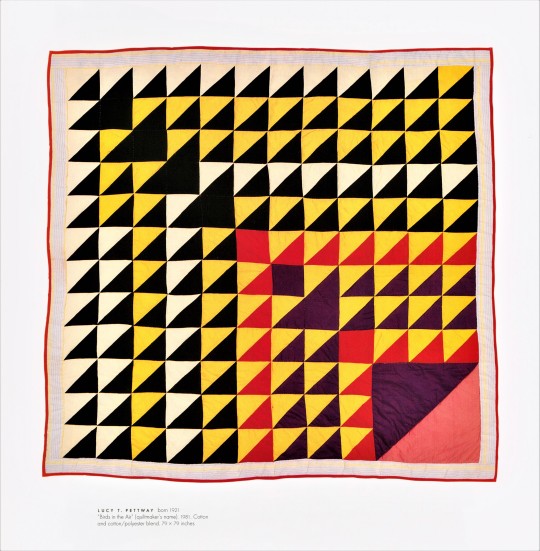
View more Black History Month posts.
View more Decorative Sunday posts.
#Decorative Sunday#Black History Month#decorative plates#decorative arts#quilts#Gee's Bend#quilts of Gee's Bend#Gee’s Bend: The Women and Their Quilts#Museum of Fine Arts in Houston#William Arnett#John Beardsley#Paul Arnett#Jane Livingston#Alvia Wardlaw#Peter Marzio#Tinwood Books#Suzy Ettinger#Black artists#Black women artists
605 notes
·
View notes
Text
Brilliant authors connecting us with the Black experience. Use the code FREEPUP for a free ebook or audiobook of your choice.

#black history month#civil rights movement#Books#The Black Experience#Black experience#books about the Black experience
472 notes
·
View notes
Text
#VoicesFromTheStacks

Image: Self Portrait with cranes from Hope Project (Photo credit: Clarissa Sligh)
The Artist Books of Clarissa Sligh
In honor of Black History Month, we are highlighting artist, writer, and lecturer Clarissa Sligh. Born in Washington, D.C. and raised in Virginia, Sligh is often inspired by cultural, historical, and political events that intersect with moments in her life. Sligh considers these interactions, or “collisions,” between moments in history and events in one’s life to be significant and transformative. One such example of this is detailed in Sligh’s work “It Wasn’t Little Rock,” which discusses desegregation in public schools during the 1960s, a personal topic for Sligh, who was the lead plaintiff at the age of 15 in a school desegregation case.
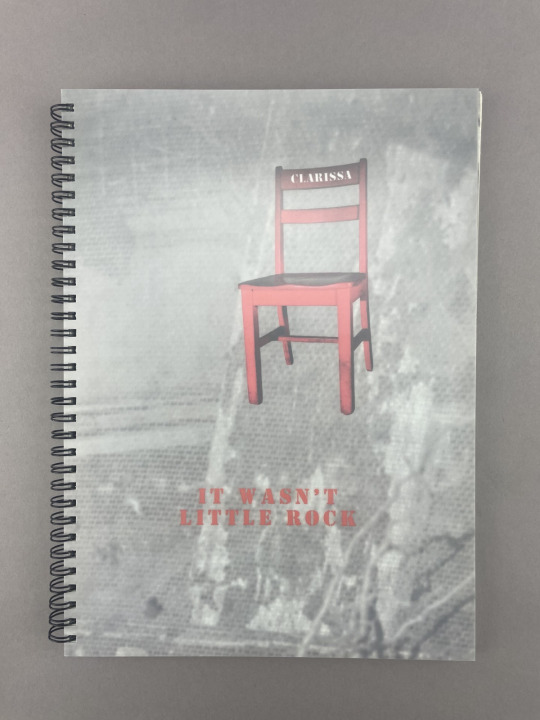
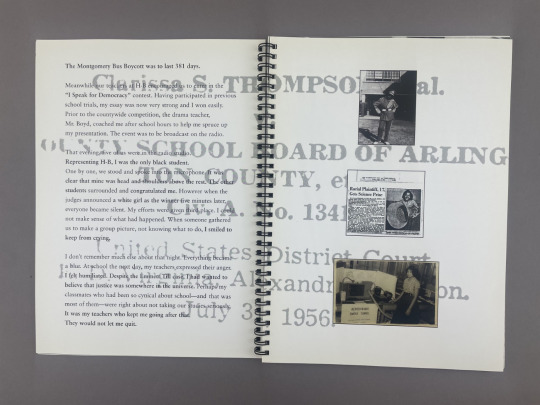
Images: Cover and inside page of "It Wasn't Little Rock" (2005)
A notable example of Sligh’s work and its reference to her personal experiences is her 1988 artist's book titled “What’s Happening with Momma?” Here, the artist engages users to “walk” through rooms of her childhood home, following the steps of accordion-folded strips of paper filled with text detailing memories of her sister’s birth in the home. This is Sligh’s first artist’s book, made through the Women’s Studio Workshop in New York.

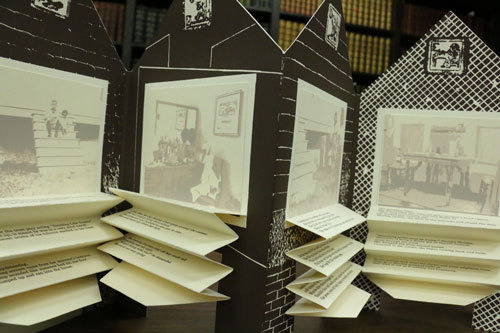
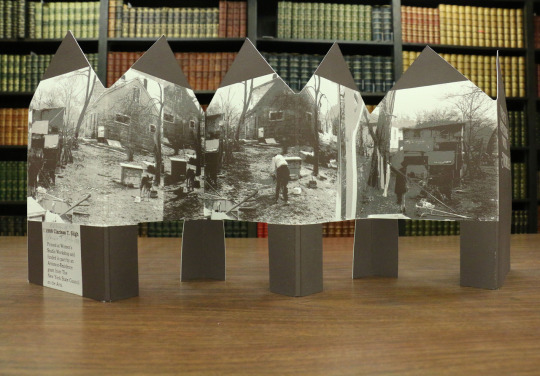
Images: Cover and inside page of "What's Happening with Momma" (1988)
Sligh earned a BS in Mathematics from Hampton Institute in Virginia, a BFA and an MFA in visual arts from Howard University, and an MBA from the University of Pennsylvania. Earlier in her career she had worked at NASA in the manned space flight program, eventually leaving to focus on working as an artist. Her works have been featured all over the world, notably at the Museum of Modern Art in New York, the National Museum of African American History and Culture, and more. To learn more about Sligh and her works, visit the artist’s website.
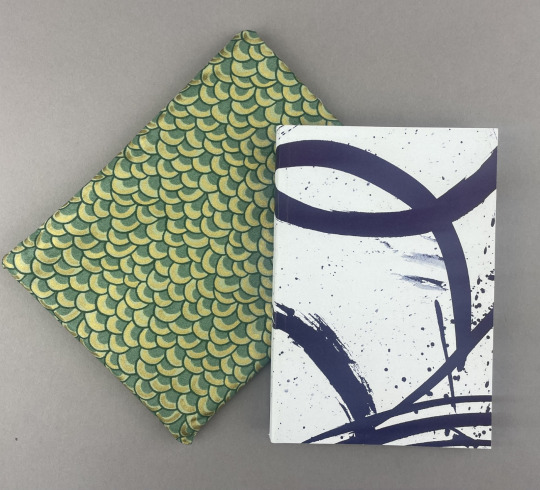

Images: Cloth enclosure, cover and inside page of "Voyage(r): A Tourist Map to Japan" (2000)
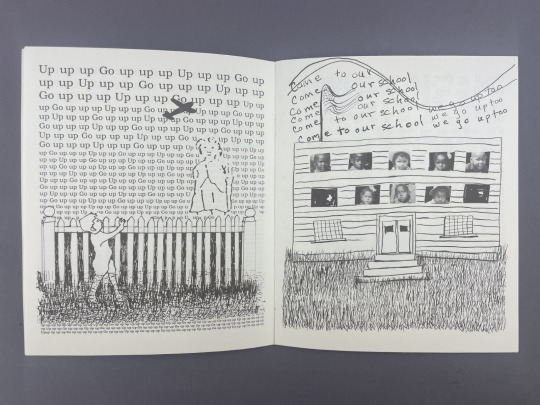

Images: Left: Inside page of "Reading Dick and Jane with Me" (1989). Right: Cover and origami crane for "Transforming Hate" (2016).
– Kaylee S., Special Collections Olson Graduate Assistant
#uiowa#libraries#special collections#uiowaspecialcollections#rare books#voicesfromthestacks#artist books#Clarissa Sligh#black history month
70 notes
·
View notes
Text

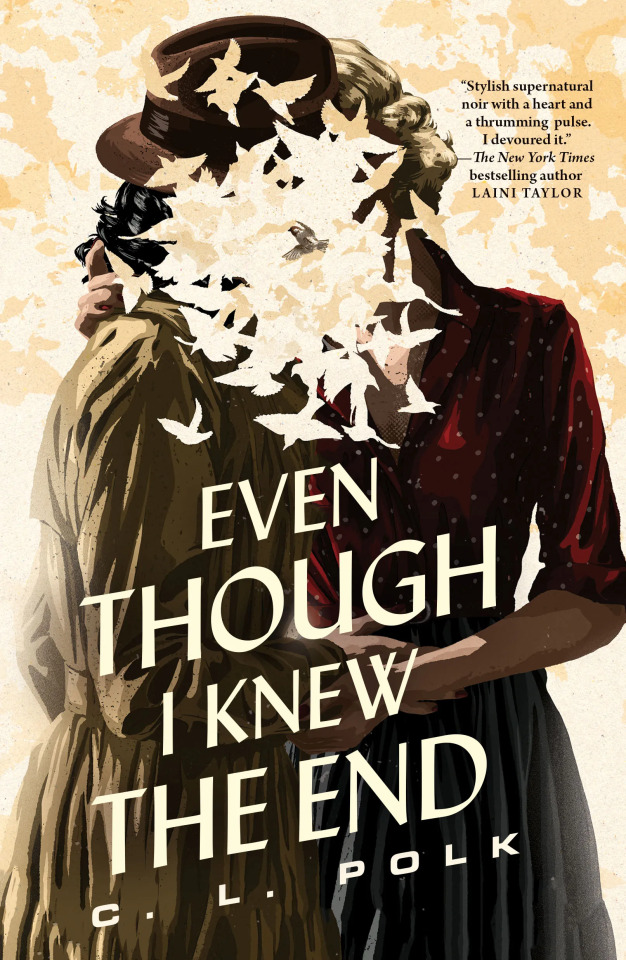
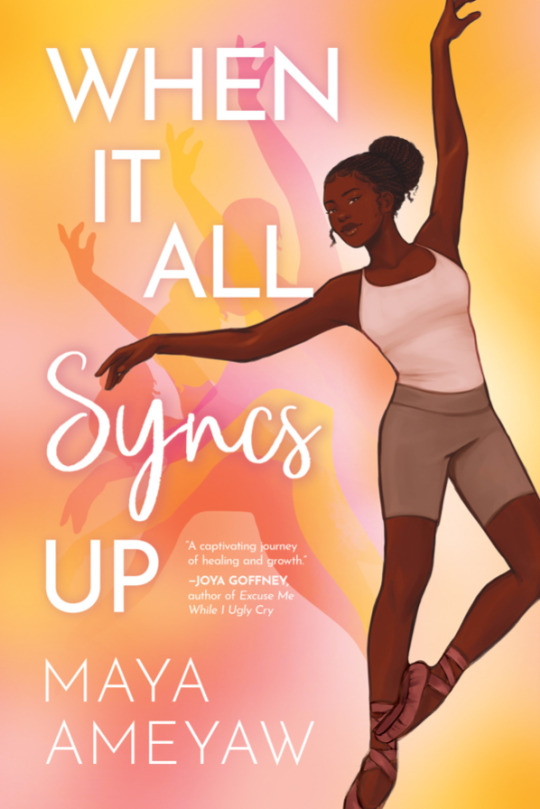
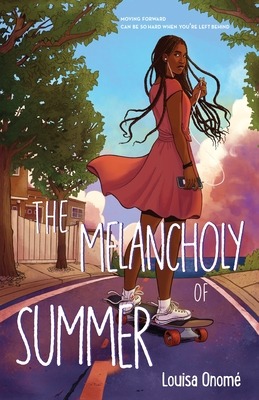
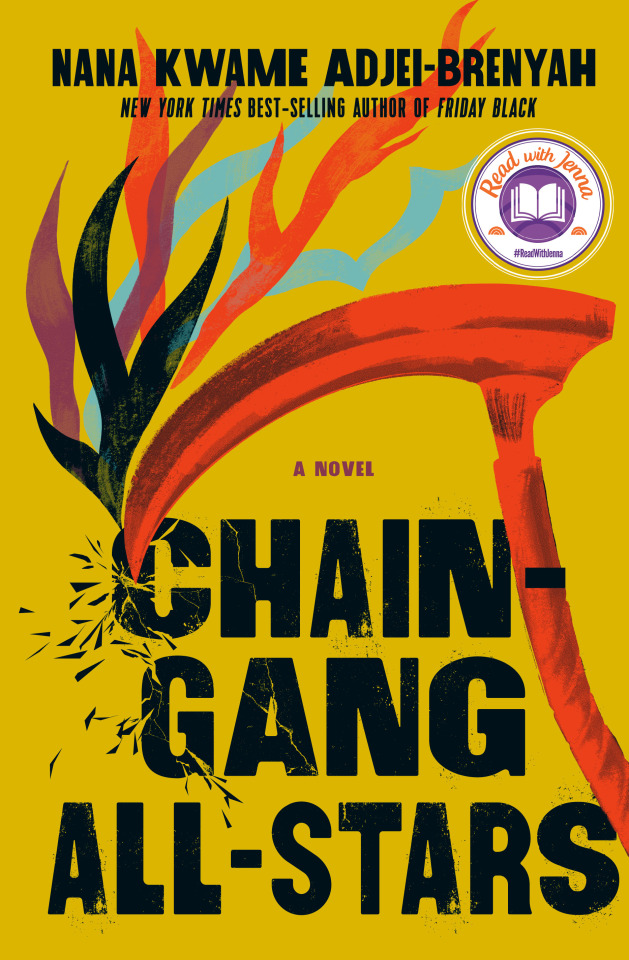

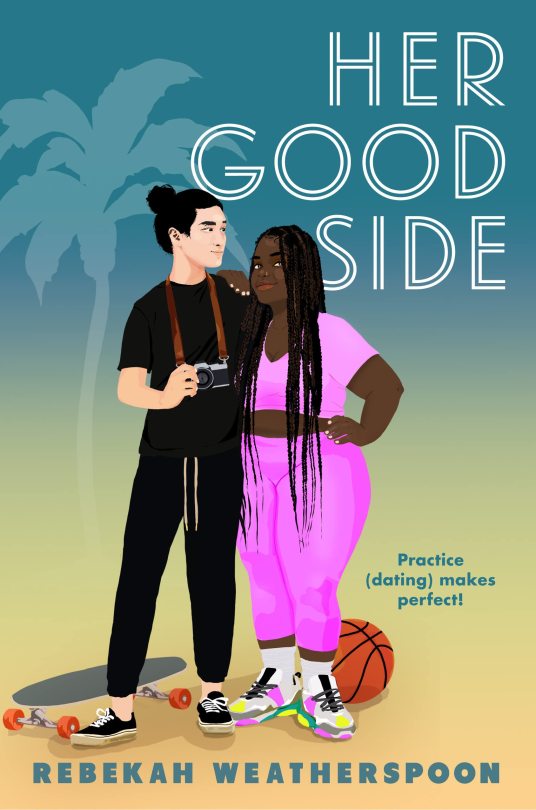
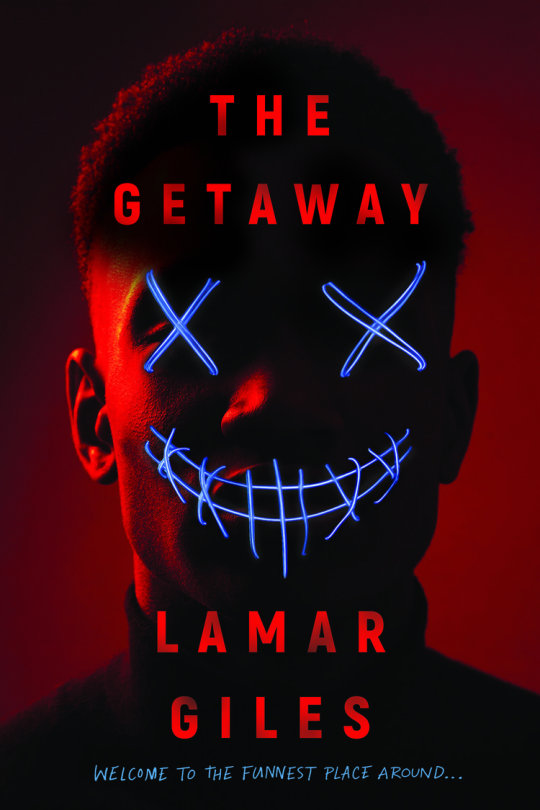


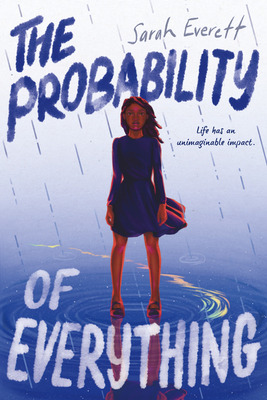

12 Books By Black Authors I've Recently Read & Recommend:
Highly Suspicious and Unfairly Cute by Talia Hibbert
Even Though I Knew the End by C.L. Polk
When it All Syncs Up by Maya Ameyaw
The Melancholy of Summer by Louisa Onomé
Chain-Gang All-Stars by Nana Kwame Adjei-Brenyah
The Girl in the Lake by India Hill Brown
Her Good Side by Rebekah Weatherspoon
The Getaway by Lamar Giles
Their Vicious Games by Joelle Wellington
Long Shot by Kennedy Ryan
The Probability of Everything by Sarah Everett
That Time I Got Drunk and Saved a Demon by Kimberly Lemming
___
Have you read any of these books? Would you recommend them?
___
Happy reading!
#book recommendations#Features#Black Authors#Black History Month#book recos#on books#on reading#books#booklr#bookish#bookworm#bookaholic#book blogger#book blog#bibliophile#books books books#books and reading#booklover#reading#read#reader#book list#diversify your shelves
70 notes
·
View notes
Text
Public Domain Black History Books
For the day Frederick Douglass celebrated as his birthday (February 14, Douglass Day, and the reason February is Black History Month), here's a selection of historical books by Black authors covering various aspects of Black history (mostly in the US) that you can download For Free, Legally And Easily!
Slave Narratives
This comprised a hugely influential genre of Black writing throughout the 1800s - memoirs of people born (or kidnapped) into slavery, their experiences, and their escapes. These were often published to fuel the abolitionist movement against slavery in the 1820s-1860s and are graphic and uncompromising about the horrors of slavery, the redemptive power of literacy, and the importance of abolitionist support.
Narrative of the Life of Frederick Douglass - 1845 - one of the most iconic autobiographies of the 1800s, covering his early life when he was enslaved in Maryland, and his escape to Massachusetts where he became a leading figure in the abolition movement.
Running a Thousand Miles for Freedom by William and Ellen Craft - 1860 - the memoir of a married couple's escape from slavery in Georgia, to Philadelphia and eventually to England. Ellen Craft was half-white, the child of her enslaver, but she could pass as white, and she posed as her husband William's owner to get them both out of the slave states. Harrowing, tense, and eminently readable - I honestly think Part 1 should be assigned reading in every American high school in the antebellum unit.
Incidents in the Life of a Slave Girl by Harriet Jacobs writing under the name Linda Brent - 1861 - writing specifically to reach white women and arguing for the need for sisterhood and solidarity between white and Black women, Jacobs writes of her childhood in slavery and how terrible it was for women and mothers even under supposedly "nice" masters including supposedly "nice" white women.
Twelve Years a Slave by Solomon Northup - 1853 - Born a free Black man in New York, Northup was kidnapped into slavery as an adult and sold south to Louisiana. This memoir of the brutality he endured was the basis of the 2013 Oscar-winning movie.
Early 1900s Black Life and Philosophy
Slavery is of course not the only aspect of Black history, and writers in the late 1800s and early 1900s had their own concerns, experiences, and perspectives on what it meant to be Black.
Up From Slavery by Booker T. Washington - 1901 - an autobiography of one of the most prominent African-American leaders and educators in the late 1800s/early 1900s, about his experiences both learning and teaching, and the power and importance of equal education. Race relations in the Reconstruction era Southern US are a major concern, and his hope that education and equal dignity could lead to mutual respect has... a long way to go still.
The Souls of Black Folk by W.E.B. Du Bois - 1903 - an iconic work of sociology and advocacy about the African-American experience as a people, class, and community. We read selections from this in Anthropology Theory but I think it should be more widely read than just assigned in college classes.
Darkwater: Voices from Within the Veil by W.E.B. Du Bois - 1920 - collected essays and poems on race, religion, gender, politics, and society.
A Negro Explorer at the North Pole by Matthew Henson - 1908 - Black history doesn't have to be about racism. Matthew Henson was a sailor and explorer and was the longtime companion and expedition partner of Robert Peary. This is his adventure-memoir of the expedition that reached the North Pole. (Though his descriptions of the Indigenous Greenlandic Inuit people are... really paternalistic in uncomfortable ways even when he's trying to be supportive.)
Poetry
Standard Ebooks also compiles poetry collections, and here are some by Black authors.
Langston Hughes - 1920s - probably the most famous poet of the Harlem Renaissance.
James Weldon Johnson - early 1900s through 1920s - tends to be in a more traditionalist style than Hughes, and he preferred the term for the 1920s proliferation of African-American art "the flowering of Negro literature."
Sarah Louisa Forten Purvis - 1830s - a Black abolitionist poet, this is more of a chapbook of her work that was published in newspapers than a full book collection. There are very common early-1800s poetry themes of love, family, religion, and nostalgia, but overwhelmingly her topic was abolition and anti-slavery, appealing to a shared womanhood.
Science Fiction
This is Black history to me - Samuel Delany's first published novel, The Jewels of Aptor, a sci-fi adventure from the early 60s that encapsulates a lot of early 60s thoughts and anxieties. New agey religion, forgotten technology mistaken for magic, psychic powers, nuclear war, post-nuclear society that feels more like a fantasy kingdom than a sci-fi world until they sail for the island that still has all the high tech that no one really knows how to use... it's a quick and entertaining read.
64 notes
·
View notes